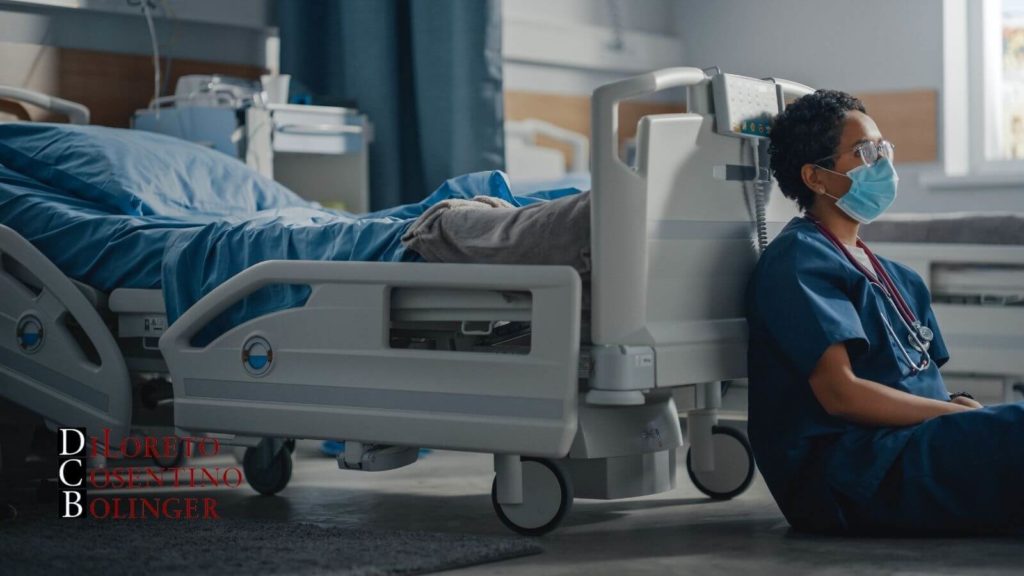
Medical professionals face different types of danger on every shift. From aggressive patients to toxic exposure, nurses often suffer devastating work injuries. While every experience is unique, there are certain types of hazards that are common across this crucial occupation.
Whether in a hospital or other medical facility, nurses can suffer severe injuries in many different ways. Here are five common sources of serious injury for nurses.
- Overexertion: The U.S. Bureau of Labor Statistics (BLS) has listed overexertion as accounting for nearly half (46%) of all nursing injury cases. Overexertion can include activities such as excessive physical effort, lifting, twisting and the bodily stress of repetitive movements. Overexertion can lead to muscle strain, tendon damage, torn ligaments and joint problems.
- Slips, trips and falls: Medical facilities can quickly become messy, crowded environments. From slipping in a puddle of fluid to tripping over products lining the hallways, nurses often suffer injuries while attempting to move quickly through these dangerous environments. Slips, trips and falls can lead to broken bones, head trauma and soft tissue damage.
- Violence by patients or family members: Hospitals and other medical care facilities can become dangerous environments for physical harm. From emotional outbursts of family members turning into physical violence to an aggressive patient resisting restraints, nurses often come face to face with serious physical injuries.
- Contact with medical equipment: From being stuck by needles and other sharp objects to crush injuries from heavy equipment, nurses can suffer serious injuries on the job.
- Exposure to toxic or harmful substances: While on the job, nurses can suffer dangerous conditions as a result of toxic exposure. Inhalation, ingestion and skin exposure of different substances can all lead to dangerous conditions. From lung damage and skin infections to viruses and organ failure, toxic substances can lead to lifelong or fatal conditions.
The medical profession is a dangerous career choice. In this occupation, individuals can suffer devastating, life-altering injuries and conditions. From physical injuries following a single accident to repeated stress and toxic exposure, nurses face countless hazards on every shift.
Fortunately, injured nurses have options for monetary compensation through workers’ compensation benefits. While the legal process might seem overwhelming, it is wise to thoroughly understand your potential benefits.

